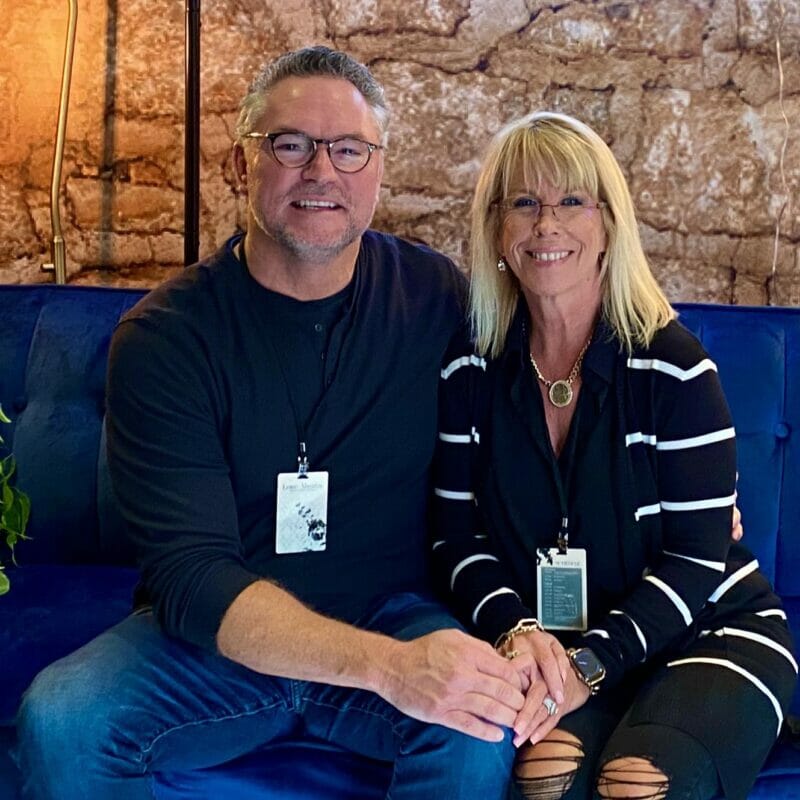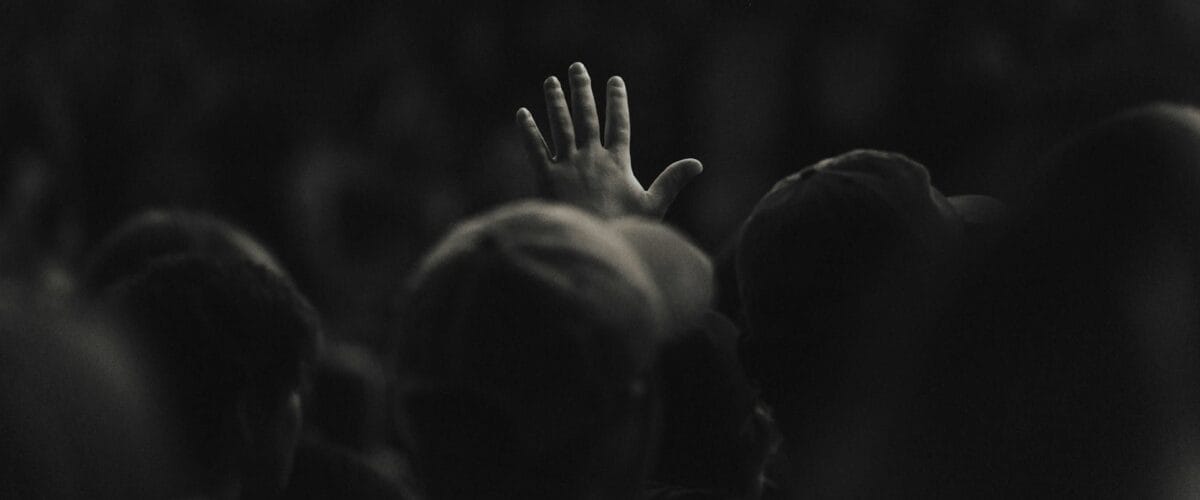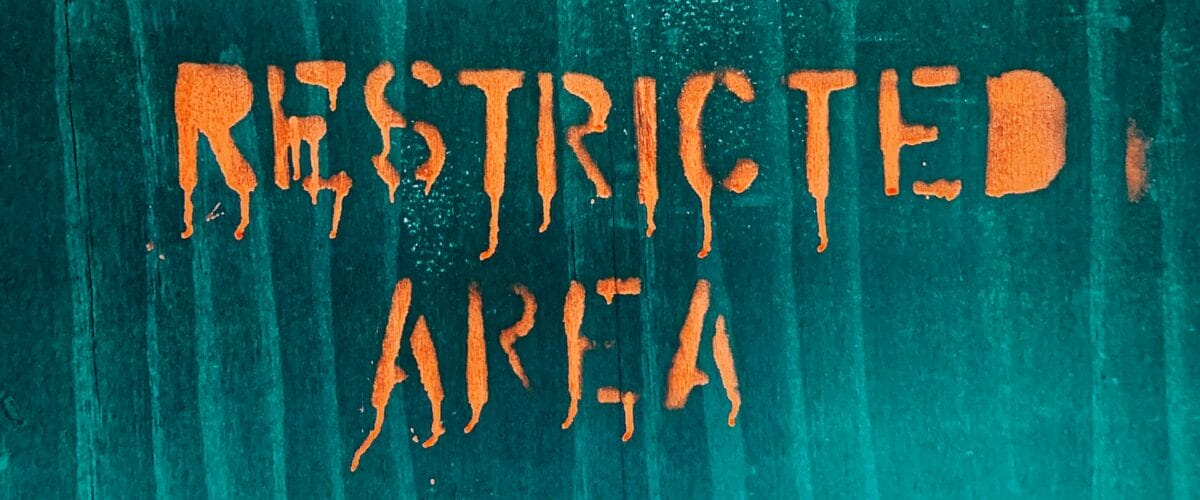C.S. Lewis, the great apologist, said, “The Bible is its own best interpretation,” and John MacArthur was known all of his life for one very simple moniker – he preached the Bible with the Bible. No illustration needed. So, sometimes we get caught up in trying to make it sound more than it is. Like this one excited pastor who came to the town and saw a thriving new neighborhood, and he wanted to invite them to his church.
So he went door to door, and then wherever he would knock on the door or see some people scattering and trying to hide, he left his business card with a scripture. That scripture was Revelation 3:20 – “I came, I knocked, and if you had answered, I would have come in with you, and I would have dined with you.” He was surprised the next day when he found his business card in the collection plate. It had a scripture, too. But this was from Genesis 3:10. “I heard you knocking. I was naked. I was afraid to answer.”
Luke 21:1-4 NIV
“As Jesus looked up, he saw the rich putting their gifts into the temple treasury. He also saw a poor widow put in two very small copper coins. ‘Truly I tell you,’ he said, ‘this poor widow has put in more than all the others. All these people gave their gifts out of their wealth; but she out of her poverty put in all she had to live on.’ ”
The lynchpin of the message today is, “Are we doing something every day that causes the Good Lord, who’s got so much on His plate, to look up and take notice?” Everybody was doing their own stuff, but the scripture says that he looked up and he noticed her. So the first principle – the first mood – is the “visible giver.” This is origination. Are you a visible giver in what you do? I’m not talking about money. I’m not talking about anything that you think you’re being asked to do. Think about this – this woman was in a group of affluent people. Sometimes we shirk our responsibility because of how we look and how we sound. We’re worried about what other people will think.
She didn’t care. Maybe she wasn’t dressed right, but what our Lord is saying in this parable is that she gave out of a dearth. Annie Johnson Flint’s poem ends that way: “For out of his infinite riches in Jesus, he giveth and giveth and giveth again.”
There’s a small part of London that’s tucked away, called the Bunhill Memorial or Bunhill burial place. It’s across from where John Wesley spent the last twelve years of his life. In that small square, William Blake is buried, John Bunyan is buried, Susanna Wesley is buried, and Daniel Defoe, who wrote Robinson Crusoe, is buried. Isaac Watts, who wrote some of the great hymns, is also buried there. As you walk through there, you realize these people gave it all. They put it all on the line, and you have to stand there and marvel. That small plot changed the world. But today, if you go, it’s obscure. Nobody cares.
Can you imagine standing next to John Bunyan’s grave? For sixteen years, he labored in a prison. Or by the Catholic priest who was imprisoned in France for proselytizing on the street, and he drew a cross next to the window. At the top of the cross, he put “height”. At the bottom of the cross, he put “depth”. On each side, he put “width” and “length”. And when someone asked him what that meant, he said, “That’s what the cross represents for me – the height of his love, the depth of his search, the reach of his word.” But our Lord, when he said, “It is finished,” the Greek word is tetelestai – which means complete or finished. In English, both mean the same thing, but in our contemporary world, think of how different we have made those words. “You marry the right woman – you’re complete. You married the wrong one – you’re finished.”
Some things are not that complicated. Look at the second part of that verse – “And he saw a poor widow put in two small copper coins and he said, ‘Truly I tell you this poor widow has put in more than all of them.’ ” This is the visible gift. The observation first is the visible, which is the origination, then the viable – does our gift have the ability to stand the test of time?
Isaac Watts wrote a poem that was memorized by the Founding Fathers. It was in the New England Primer in the early days. From the second Psalm: “Why do the nations join to slay the Lord’s anointed Son? Why do they cast his laws away and tread his gospel down? The Lord who reigns above the sky derides with rage below and speaks with vengeance in his eyes and cast their spirits through. I call him my eternal Son and raised him from the dead. I made my holy hill his throne and wide his kingdom spread. Ask me my Son and then enjoy the utmost heathen land. Thy rod of iron will destroy the rebel that withstands. Be wise ye rulers of the earth. Adore the heavenly lord. Obey the King of heavenly worth and tremble at his word with humble love. Address his throne for if he frown ye die for he is safe and he alone who on his grace rely.”
What is your viable gift but the grace of God? As Pastor Jimmy says, “We get to do this.” That’s a gift. Not “we have to” – not “we want to” – but “we get to”. That’s the beauty of it. The beauty of this woman getting up was that she got to do it. She didn’t care what others thought about how she looked. She didn’t care about the size of her offering. And there is story after story of people who gave their everything and revolutionized nations for the cause. It’s not about the amount of stuff we have – that’s net worth. It’s not about the number of people you know – that’s net-work. It’s about what you do with what you have and giving it all. That’s His work. Everything changes when you become obedient – that partial obedience stands for dis–obedience.
We always ask ourselves “how much,” but it’s not how much, it’s why we’re giving it to begin with. The beauty of a joyful heart is that we shouldn’t even feel it. It shouldn’t bother us. It’s just second nature. We do it because we get to do it. That’s all. It’s not about the percentages thing. If God owns it all, why are we bargaining with him? We can’t out-give him, and we can’t out-love him.
From Genesis to Revelation, it’s about that one verse John 3:16: “For God so loved the world that whosoever…” We want to be viable in our giving. Just remember that word “whosoever.” You and I are nothing special – we’re just whosoevers that he died for – his supreme love sacrificed – and what we get to do is to be part of his finished work – that he completed – and before he unites us with the Father, he gets to take us with him. And that’s what this widow is reminding me of. We get to do this not because of how we look or the car we drive. No – every day is Father’s Day when we worship God, and wherever we go, he will make us worthy.
We have to believe that, otherwise we’re always walking around on eggshells. But political correctness will be the death of this nation if everybody is walking on eggshells trying to impress people by not saying the wrong things. We’re so consumed by how we look and what we do. This widow didn’t – but he caught her. She caught his attention.
Does the Good Lord catch our attention? All these billions on planet Earth, and he’s pausing saying, “You know what? That’s My child.” By the grace of God alone – that’s all we need in order to be a viable giver and to realize that he commands our look – he commands our action – he commands our coming and he commands our going – and we want to catch his attention.
The last mood is the “victorious giving”. This is the ordination. William Blake wrote a poem called New Jerusalem because he was perturbed by the industrial revolution and how people were getting so mechanized in their comfort – how everything that was going on in England was going against the grain of a God-ordained nation. England revolutionized the world with missions by the London Missionary Society. This is who sent David Livingston to Africa, Henry Martin to Persia, and William Kerry to India. Today, if you go there, it has died a death of a thousand qualifications. William Blake is writing this poem because they believe that Christ actually came to the heels of the Western Roman Empire, which historians dispute.
Picture this in light of where we are going. Whether it’s saving a republic, or whatever it is, what is the stake in the ground we are going to put down because we get to do this? We’re going to be like that widow, so God notices us doing something spectacular for this time. Here’s how Blake put it: “Did these feet in ancient times walk upon England’s mountain green, and was the holy lamp of God on England’s pleasant pasture scene? Did the Countenance Divine shine forth upon our clouded hills? And was Jerusalem builded here amongst these dark satanic mills? Bring me my bow of burning gold. Bring me my arrow of desire. Bring me my spear, O clouds unfold. Bring me my chariot of fire. And I shall not seize my mental strife. Nor shall my sword sit in my hand till we have built Jerusalem on England’s green and pleasant land.”
If all we have in this nation is maybe another ten years, we don’t want to be the ones who took and never gave. We don’t want to be the ones who say, “You know what, all of the advent of technology has allowed us to have convenience, but we didn’t do anything to preserve it for posterity.” We are now in that 250th year, right? When people ask me why we do what we do, maybe this little piece that we are trying to carve out by training youngsters for the future is building a “New Jerusalem.” Maybe we become the epicenter, and for once, start sending people out again like they went around the world before.
Our mission trips can’t just be short-term halo adjustments anymore. We have to convince people that if this is a way of life and this is an ideal that is God-given and God-ordained, to go. But that’s the joy – the equivalence of looking. And when he gives that edict, we suddenly look at Scripture and can see three things: the origin of giving, the observation of giving, and the ordination of having given. We all want to know how it ends, right? Every one who is going to have a memorial service will be talked about by our preacher. And surely he will include the words, “Well done, My good and faithful servant.”
But, like the widow, we don’t want to wait to meet him. We want him to stop what he’s doing and look at us now, saying, “Well done.” We want him to say that we are not waiting for heaven to receive the grandeur. This person is on earth, lighting it up – going out of his comfort zone to start making things happen. Sometimes we end up majoring in minors. But the days of diplomacy are over. We need to have the courage of our own convictions today to say, “You know what? Even if you disagree with me, you can’t hurl a lightning bolt at me. I don’t care what I’m wearing. Whether they’re boots and jeans, whether I’m wearing a hat – I don’t care what I’m wearing. When I do something for God, it’s going to be noticed. And it’s going to be noticed, not because I want to be noticed, but I’m doing it because I get to do it. That’s all.”
We’re all worried about criticism, and that’s why we stay shell-shocked. That’s why we don’t want to be visible. We’re afraid of what people will say. But here’s a news flash – if life were a popularity contest, we wouldn’t win. So, we need to get off that high horse real quick. There’s never been one statue erected to a critic. They’re not held in such high esteem after all.
Someone says, “Well, I just want to be happy.” But the only thing that gives us happiness, if we want to be truly happy all of our lives, is to sell ice cream. Outside of that, there’s no other gig in the world that has complete joy. If we want happiness for an hour, eat an ice cream. If we want happiness for an afternoon, take a nap. If we want happiness for a weekend, go fishing. If we want happiness for a month, get married. But if we want happiness for a lifetime, do what Zig Ziggler coined as his great phrase: “You can have everything in life you want if you just help enough other people get what they want.”
But that has to be a philosophy; it can’t just be a tactic. We have to do it because it’s the right thing to do. We have to give because it is the Samaritan way. Don’t parse it. Don’t “percentile” it. Don’t “net” it. Don’t “gross” it – just do it. And suddenly, we’ll begin to realize the transition that will begin to take place in our lifetime. The goal – anybody can have a goal. Alcoholics have goals. Drug addicts have goals. Bank robbers have goals. But we’re talking about a God-ordained goals program. And another component is we must have pride in our giving – not false pride, which is vanity, but a healthy self-pride because we are made in his image, we’re given his intellect, and we have the prowess to be able to take on the naysayers and cut them short with their own stupidity.
We’ve got negative people in this world – they are everywhere. It’s like they can’t wait to find us and open a can of stupid. One guy was asking author John Lennox, “How can you worship a God who decided that you should have the tree of life but not partake from the tree of the knowledge of good and evil?” And John looked at him and said, “That’s true in one way – God said, ‘Don’t partake from the tree of the knowledge of good and evil.’ And all the smart people we know seem to have partaken from that tree.” I love that question because it was first asked by a snake.
We’ve made it so complex. Think about the simplicity of what we’re being asked to do. Give. How could it be much easier? Adoration is a gift. It’s free. It’s the only one that has no strings, but we adore unlimitedly. Why can’t we give like that widow walking down the street – we see someone in peril – we offer to help. And this is a question that plagues us. We don’t give people rides anymore because we’re afraid of what will happen. We don’t stop to help anyone because, obviously, at some point, we don’t know if it’s a trap. As a result of that, we’re cowering behind our own cowardice. But what’s the worst that can happen?
We were already promised that “if you love Me, they will hate you”. We go into it knowing that. And somewhere along the line, this country lost its moral bearings post-Vietnam. Her cultural soul came home in a body bag. The Church has to lead because the Church actually was responsible for the gaping hole we’ve created in the last forty years. We’ve tried to open our doors to embrace and influence culture, and instead let those open doors influence us. The greatest copout of the last forty years was “love the sinner – hate the sin”. And sometimes we have to be cautious about how we let that become an anthem. The late RC Sproul put it this way, “God’s never sent sin to hell. Invariably, whoever makes it to hell is not because of their act. It’s the person.” In the concept of love, we have to be very careful that when they come in here, they’re not just hearing the sweet sugar-coatedness.
Sometimes we have to get away from John 3:16 and preach God’s love through his wrath – preach God’s love in the red-horse scorching words he gave to the people who were in the Temple – the changers of money – preach the sweet, soothing nature of love to his twice-dead friend Lazarus. There are so many complexities to love. Our own son is estranged at this season. People always ask us, “Well, shouldn’t you just love him?” I said, “We do love him, but it is bathed deeply in the truth that God wants that love to have.” Truth is non-negotiable. Truth by nature is exclusive. Love can have dimensions. If we waver from that truth, this love takes on a definition that is demonic, and then it’s very easy to dance for death.
We have to stand up. If we’re flying in a plane and that sucker goes down, we’re going to die, and we need to know that we’ve made preparation to meet Him. Other than that, the only reason they need our seat belt buckled up is so it’s easy for the airlines to know who sat where. We get caught up on the wrong side of this stuff. And that’s why this passage, when I preach it anywhere or give it as a message anywhere in the world, is deeply in prayer to ask you to give, but do it gracefully – do it cheerfully. Again, I’m not talking about money. If it were only money, it would be easy, but Scripture says that it’s easier for a camel to go through the eye of a needle than for a rich man to get through the gates. If it were just giving, what we’re saying is that we’re giving out of our abundance. That’s the rich man. By the same token, we don’t know when this ends – none of us do.
Carl Bard said, “None of us can go back and make a brand new beginning, but all of us can start now and make a fantastic ending.” But now, SpaceX has a Starship that’s going to come down in November and wipe us out. They’ve been predicting our doom since the Lord left, but one of these days they’ll be right. The odds will catch up with us. And at that point, God will say, “I sent you a bunch of warnings, including some knuckleheads, but hey, you didn’t pay any attention.” And one of these days it’ll end, and at that point is the greatest loss in humanity because there are only two statements a man can make at checkpoint Charlie: “I wish I had.” or I’m glad I did.” Imagine a life of “I wish I had” – one of regret.
Our giving should be like the O.Henry story, “The Gift of the Magi”. Della had long hair – great tresses of hair – and Jim had a pocket watch, and these were their only two possessions. The pocket watch lacked a chain, but it was a gift from his father. Come Christmas time, Della decided that her faithful husband needed a chain for his watch, but she had no money. She noticed a sign in a shop window and thought, “If I cut off my hair and sell my hair, I can get the twenty dollars needed to buy the chain.”
That same day, Jim happened to realize that he had never been able to give his wife anything of beauty, and he saw a set of ivory combs for sale. He so admired Della’s long tresses of cascading hair, so he decided the only thing he needed to do was to sell that which meant so much to him, and he gave up his watch. She sold her hair to buy him a chain, and he sold his watch to buy her the combs. Both of them exchanged the gifts with great love and tears in their eyes, realizing that the gift was bathed in an incredible love but had no intrinsic value because neither of them could use it. God doesn’t need us. He wants us. God doesn’t need our money – He created the universe. He wants us to be like that widow, and we need to get up so he’ll notice us.
Prayer
Dear Heavenly Father, what does this look like for us – what part of our own life are we holding back from You when You are trying to invite us into the freedom of just giving because we get to? Lord, give us grace in this moment to release that area to You. God, may we learn from the widow. Lord, may we embrace the Truth that there is freedom, joy, peace, and an open road before us whenever we trust You fully and completely. Lord, may we have the courage to abandon ourselves to You in every way and in every area.
God, wherever we are being held captive against just letting go, Lord, by Your grace and Your Spirit that You would give us the courage right now to release it – to let go – and to trust You where we’ve never been able to before. And God, as we go, may joy erupt out of our hearts as you meet with us in this place. God, we pray these things in Jesus’ holy name. Amen
This is an updated edition of a post originally published on The Bridge
Featured Image by Gerd Altmann from Pixabay




















Comments are closed.